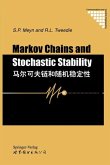One of the most important methods in dealing with the optimization of large, complex systems is that of hierarchical decomposition. The idea is to reduce the overall complex problem into manageable approximate problems or subproblems, to solve these problems, and to construct a solution of the original problem from the solutions of these simpler prob lems. Development of such approaches for large complex systems has been identified as a particularly fruitful area by the Committee on the Next Decade in Operations Research (1988) [42] as well as by the Panel on Future Directions in Control Theory (1988) [65]. Most manufacturing firms are complex systems characterized by sev eral decision subsystems, such as finance, personnel, marketing, and op erations. They may have several plants and warehouses and a wide variety of machines and equipment devoted to producing a large number of different products. Moreover, they are subject to deterministic as well as stochastic discrete events, such as purchasing new equipment, hiring and layoff of personnel, and machine setups, failures, and repairs.
Hinweis: Dieser Artikel kann nur an eine deutsche Lieferadresse ausgeliefert werden.
Hinweis: Dieser Artikel kann nur an eine deutsche Lieferadresse ausgeliefert werden.
"This monograph is both a well-prepared report about brand-new results of recent research and a very nicely and carefully written (graduate) textbook on the field of stochastic manufacturing systems. It is recommendable to operations researchers and system theorists as well as to applied mathematicians." -Optimization "A truly remarkable book, in which Sethi and Zhang have contributed enormously to the area of hierarchical controls in manufacturing. It is strongly recommended to operations researchers, industrial engineers, system and control theorists, applied mathematicians, and specialists in operations management." - Journal of Discrete Event Dynamic Systems "This book is clearly intended for an audience that is well versed in dynamic programming and finite state Markov processes. It would be well suited for researchers and graduate students in operations research, systems and control theory, and applied mathematics. Sethi and Zhang provide a very clearly written book that fills a gap in the research on hierarchical control of manufacturing systems by synthesizing research that was previously available only in research journals into a well-organized single volume." - Interfaces "Suresh Sethi has clearly made a series of important extensions to the treatment of hierarchical systems and applications to management science problems, and the book with Zhang is an impressive piece of work." - Herbert A. Simon, Carnegie Mellon University "The book is clearly written for operation researchers, system and control theorists and applied mathematicians." - Mathematical Reviews "Clear descriptions are followed by rigorous mathematical treatments. The bibliography is extensive and good...The book is a valuable progress report." - Computing Reviews "The book is recommended to anybody who has an interest in applied stochastic processes or manufacturing problems." - Short Book Reviews








